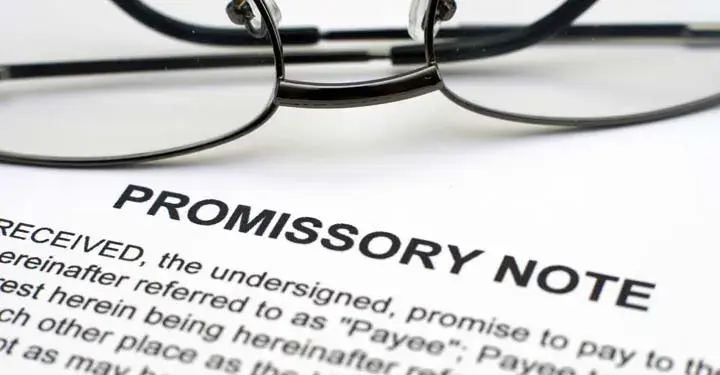
If you plan to borrow or loan money, for personal, business, or real estate purposes, you need to know the difference between unsecured and secured promissory notes.
Find more legal forms and templates


by Edward A. Haman, Esq.
Edward A. Haman is a freelance writer, who is the author of numerous self-help legal books. He has practiced law in H.
Updated on: December 8, 2023 · 3 min read
Whether you are a borrower or a lender, it's important to understand the difference between secured and unsecured promissory notes.

A promissory note is a legal document obligating the person who signs it to pay a certain sum of money to another person at a later date and outlining the terms of payment. The person owing the money is called the payor, maker, issuer, or promissor. The person who is owed the money is called the payee or promissee. A promissory note is sometimes called a note payable, or simply a note.
A secured promissory note is an obligation to pay that is secured by some type of property. This means that if the payor fails to pay, the payee can seize the designated property to obtain reimbursement of the loan. By assuring that the property attached to the note is of sufficient value to cover the amount of the loan, the payee thus has a guarantee of being repaid.
The property that secures a note is called collateral, which can be either real estate or personal property. A promissory note secured by collateral will need a second document. If the collateral is real property, there will be either a mortgage or a deed of trust. If the collateral is personal property, there will be a security agreement.
If the payor fails to pay as required by the note, the payee will typically need to file a lawsuit to foreclose on the mortgage or security agreement. If the payor files for bankruptcy, the payee's right to the property securing the loan comes before the rights of any unsecured creditors.
For the payee, the question of getting a secured vs. unsecured promissory note is best resolved in favor of a secured note. This gives the payee the most assurance of getting paid.
Secured promissory notes are most often used in loans of fairly large sums borrowed from commercial lenders.
An unsecured promissory note is an obligation for payment without any property securing the payment. If the payor fails to pay, the payee must file a lawsuit and hope that the payor has sufficient assets that can be seized to satisfy the loan. If the payor does not have sufficient assets, the payee is out of luck. If the payor files for bankruptcy, the payee's claim is behind the claims of any secured creditors.
For a payor, the question of having a secured vs. unsecured promissory note is best resolved in favor of an unsecured promissory note. This leaves the payor free to use any available property as collateral for other loans, and gives the payor the best chance of avoiding the debt in the event of financial problems. Of course, the payee may require security in the form of collateral as a condition of making the loan.
A short-term unsecured promissory note is the type most often used when a relatively small amount of money is borrowed from a friend or relative.
For loans made to businesses, another type of note is the convertible promissory note. This is a promissory note with an additional provision that allows the debt to be converted into an ownership interest in the business, in lieu of being repaid. For example, conversion could be into shares of stock in a corporation, or into membership in a limited liability company, or LLC. The note will state the conditions under which the conversion may be made. The note can be either a secured convertible promissory note or an unsecured convertible promissory note.
Templates for both secured promissory notes and unsecured promissory notes are available here.
Find more Legal Forms and TemplatesThis article is for informational purposes. This content is not legal advice, it is the expression of the author and has not been evaluated by LegalZoom for accuracy or changes in the law.
You may also like
Writing a will is one of the most important things you can do for yourself and for your loved ones, and it can be done in just minutes. Are you ready to get started?
July 21, 2024 · 11min read
A power of attorney can give trusted individuals the power to make decisions on your behalf—but only in certain situations.
August 29, 2024 · 20min read